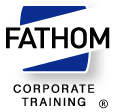
Change is a fact of life in the workplace. The trick is that the effective leader should be the one driving the change, rather than following it. As Harry Truman said, “Progress occurs when courageous, skillful leaders seize the opportunity to change things for the better.”
In recent years, many executives have found themselves reacting to the changes brought to the workplace by the millennial generation, also known as Generation Y. And, increasingly, corporations are starting to feel the effects of Generation Z as well. One interesting consequence of this generational evolution is a fundamental shift in how employees define leadership.
In a recent survey, 52 percent of Millennial and Generation Z respondents stated that honesty is the most important quality for a good leader. Millennials in particular desire feedback on where the firm is going and how they will fit into that future. These younger employees want to work for leaders who are open about what the company is doing and who provide honest feedback regularly… although they do tend to prefer mostly positive feedback.
To be effective leaders today, executives need to win the hearts and minds of their workforce by instilling trust through honesty. As a result, successful companies and savvy leaders are moving towards greater transparency.
For example, Whole Foods has a company policy that allows employees to easily look up anyone’s salary or bonus information from the previous year. This even includes the salary of the CEO, who explains that if you’re trying to create a high-trust organization, you can’t have secrets. This is an ideal policy to demonstrate leadership to Millennial and Generation Z employees.
At Fathom, we specialize in bridging the generational gaps to build awareness that leads to better hires, happier employees, stronger teams and healthier organizations. By helping our training participants to gain an understanding of core values and behaviors from the perspective of each generation, we help them better appreciate what makes each generation unique.
The Fathom Generational Training approach addresses motivational issues through a more thorough understanding of how each generation adds its own value to the workplace. In the end, participants are better equipped to communicate, demonstrate leadership and guide workplace behaviors for more effective results.
Leadership is in the eye of the beholder. Which leadership trait do you think is the most important?
John Males is Founder and President of Fathom Corporate Training. With more than 20 years of experience in management, sales and negotiations, he helps clients increase employee satisfaction, lower turnover, increase revenue and raise profit margins.
